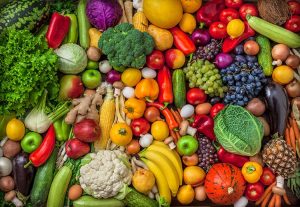Everyone knows staying hydrated is important, but a new study proves just how crucial it is. According to a recent study by the National Institutes of Health, proper hydration can significantly impact aging and disease prevention.
In fact, data collected over 25 years from more than 15,000 adults in the US has revealed that those who are not properly hydrated may age faster, are more likely to face chronic diseases, and may die younger.
If you are a gym goer, you must know what to drink during the training. Check out our blog, “What to drink during training,” for guidance.
Sodium An Indicator
The study used sodium levels in the blood as a proxy for hydration because high sodium levels indicate that enough water is not being consumed. Normal levels of blood-sodium concentrations are between 135 to 146 millimoles per liter.
Higher Risk of Chronic Diseases
The findings concluded that those with more than 142 millimoles of serum sodium had a 39 percent higher risk of developing chronic diseases such as heart failure, stroke, diabetes, and dementia.
Additionally, those with 144 millimoles had up to a 50 percent higher chance of showing signs of physical aging and a 21 percent increased risk of premature death. In contrast, those whose serum sodium levels were between 138 and 140 millimoles had the lowest risk of developing chronic disease.
Science Behind Proper Hydration
Dr. Salman Abdul Bari, Head of Accident and Emergency at RAK Hospital, explains the science behind why hydration plays such a key role in the functioning and survival of the human body. “Water constitutes 60 percent of our body weight, while the muscles and brain are about 70 percent water. Vital organs like the kidneys and heart require fluids to regulate the heart rate, blood pressure, and electrolytes.”
Benefits Of Proper Hydration
Hydration can improve digestion and help in detoxification. Dr. Bari says it decreases joint pains, helps in weight loss and management, expands energy levels, prevents kidney stones, and more. Proper hydration can also positively affect the skin’s appearance, helping to prevent wrinkles and maintain a youthful appearance.
How Much Water Should You Drink?
Dr. Bari says water intake depends on gender, body weight, life stage, and activity level. However, the average desired consumption is 2.5 to 3.5 liters or eight to 10 glasses daily. Although that can be daunting for some people, he shares some tips on how to increase water intake.
Eight Glasses of Water
The amount of water you should drink daily depends on factors such as age, weight, and activity level. As a general rule, it’s recommended that adults drink at least eight glasses of water per day. However, this may not be enough for everyone, and some people may need to drink more water to stay hydrated.
Four Ways to Improve Hydration
Drink More Water
One of the easiest ways to improve hydration is to drink more water. Try carrying a reusable water bottle with you throughout the day and sipping on it regularly. You can also set reminders on your phone or computer to help you remember to drink water.
If you struggle to drink enough water, try infusing it with fruits like lemon or berries. You can also try drinking herbal teas or coconut water, which are both hydrating and flavorful.
Eat Water-Rich Foods
In addition to drinking water, you can also improve your hydration by eating water-rich foods. Fruits and vegetables, such as watermelon, cucumber, and celery, are all high in water content and can help keep you hydrated. Other foods high in water content include soups, broths, and smoothies.
Use a Humidifier
During the winter, the air can become dry and lead to dehydration. Using a humidifier in your home or office can help add moisture to the air, keeping your skin and body hydrated. Additionally, humidifiers can help reduce the appearance of fine lines and wrinkles by keeping your skin moisturized.
Avoid Dehydrating Habits
Finally, it’s important to avoid habits that can lead to dehydration, such as excessive alcohol consumption and smoking. Both of these habits can have a diuretic effect and increase your risk of dehydration. Limiting your intake of salty foods is also important, as salt can lead to water retention and make it more difficult for the body to stay hydrated.
Staying hydrated can improve mental and physical well-being and prevent developing chronic diseases. With the new study providing evidence of the importance of proper hydration for a healthy life, it is important to take the necessary steps to increase water consumption and stay hydrated throughout the day.
Share this post
Share this post
Other posts about Nutrition & Food

18 Protein Meals
There’s good evidence to support a faster rate of weight loss when people go on low carbs and high-protein meals.

Post-Workout Snacks ─ Peanut Butter Protein Balls
Peanut butter protein balls are the perfect high-protein snack to munch on post-workout or mid-day when you need something to tide you over!

Vegetables To Lose Weight
Vegetables of nearly all varieties can help us to lose weight due to their high fiber content, which keeps us feeling fuller longer.









Comments 0